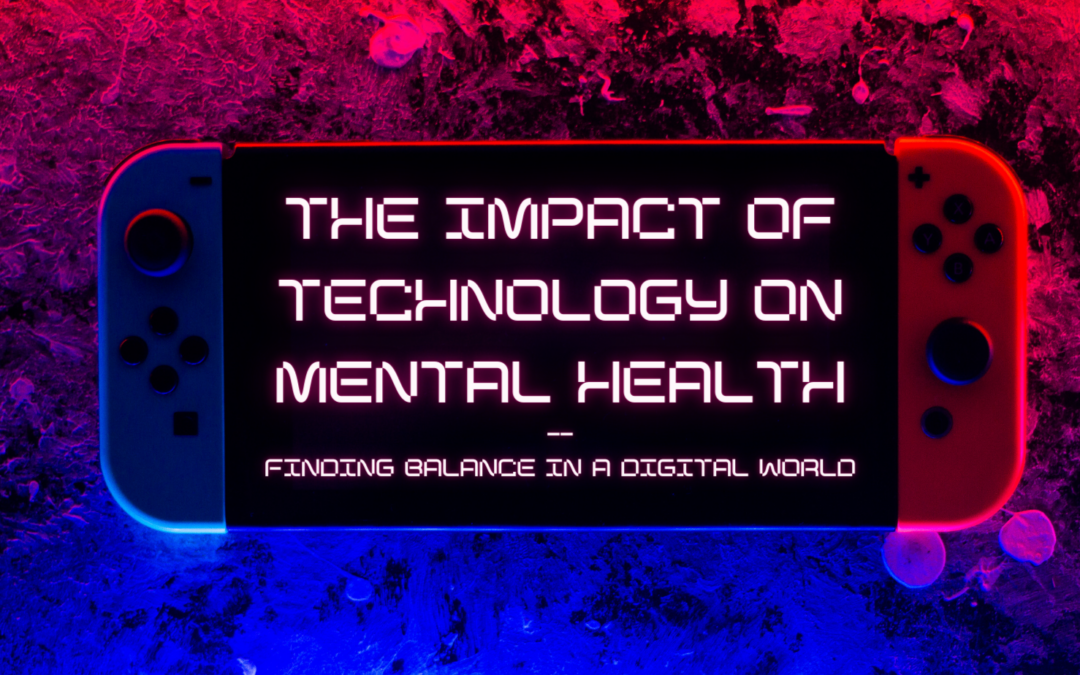In today’s digital age, technology has revolutionized the way we live, work, and interact. While advancements in technology have brought numerous benefits, such as improved communication and access to information, there is a growing concern about its impact on mental health. One area of particular concern is video game addiction, which can have significant implications for individuals, especially in a world where screens are omnipresent. Understanding the effects of video game addiction and finding strategies to achieve balance in a digital world is essential for safeguarding mental well-being.
Understanding Video Game Addiction
Video game addiction is a form of behavioral addiction characterized by excessive and compulsive use of video games, leading to negative consequences in various aspects of life. Individuals who struggle with video game addiction may prioritize gaming over other responsibilities, experience withdrawal symptoms when not playing, and exhibit decreased interest in social interactions or activities outside of gaming.
Impact on Mental Health: Video game addiction can have profound effects on mental health, including increased stress, anxiety, depression, and feelings of isolation. Excessive gaming can disrupt sleep patterns, hinder academic or work performance, and exacerbate existing mental health conditions.
Social and Emotional Implications: Individuals struggling with video game addiction may find it challenging to maintain relationships, both online and offline. The immersive nature of video games can create a sense of escapism, leading to difficulties in coping with real-world stressors and emotions.
Physical Health Concerns: Prolonged gaming sessions can result in physical health issues such as eye strain, musculoskeletal problems, and a sedentary lifestyle. Neglecting physical activity and proper nutrition in favor of gaming can contribute to overall health deterioration.
Strategies for Finding Balance
While technology, including video games, can be entertaining and beneficial in moderation, finding balance is key to preserving mental well-being. Here are some strategies to help individuals maintain a healthy relationship with technology and mitigate the risks of video game addiction:
- Set Boundaries: Establish clear boundaries around gaming habits, such as limiting screen time, scheduling regular breaks, and setting specific times for gaming to avoid excessive use.
- Diversify Activities: Encourage engagement in a variety of activities beyond gaming, such as outdoor pursuits, creative hobbies, exercise, or social gatherings. Diversifying interests promotes a balanced lifestyle and reduces reliance on gaming for entertainment.
- Monitor Behavior: Stay mindful of changes in behavior, mood, or daily routines that may indicate problematic gaming habits. Seek support from friends, family, or mental health professionals if concerns arise.
- Practice Mindfulness: Incorporate mindfulness techniques into daily routines to enhance self-awareness, manage stress, and stay present in the moment. Mindfulness can help individuals regulate emotions and reduce impulsive gaming behavior.

Seeking Professional Help
For individuals struggling with video game addiction or experiencing significant mental health challenges related to technology use, seeking professional help is crucial. Mental health professionals, including therapists, counselors, or psychologists, can provide specialized support and interventions to address underlying issues contributing to addictive behaviors and promote healthier coping mechanisms.
Therapeutic Interventions: Therapy modalities such as cognitive-behavioral therapy (CBT), dialectical behavior therapy (DBT), or addiction counseling can help individuals explore the root causes of video game addiction, develop coping strategies, and build resilience against cravings.
Support Groups: Joining support groups or online communities focused on gaming addiction can provide a sense of belonging, understanding, and encouragement from peers facing similar challenges. Peer support can be invaluable in navigating recovery and maintaining progress.
Conclusion
In conclusion, the impact of technology, specifically video game addiction, on mental health underscores the importance of finding balance in a digital world. While technology offers countless advantages and conveniences, it is essential to approach its usage mindfully and responsibly to safeguard mental well-being.
By raising awareness about the risks of video game addiction, promoting healthy tech habits, and encouraging open dialogue about mental health, individuals can cultivate a harmonious relationship with technology. Finding balance involves recognizing the signs of problematic gaming behavior, implementing strategies to mitigate risks, and seeking professional support when needed.
Remember, achieving balance in a digital world is not about complete avoidance of technology but rather about fostering a healthy equilibrium that prioritizes mental wellness and holistic self-care. By embracing a balanced approach to technology use, individuals can navigate the digital landscape with intention, resilience, and a focus on preserving their mental health and overall well-being.

